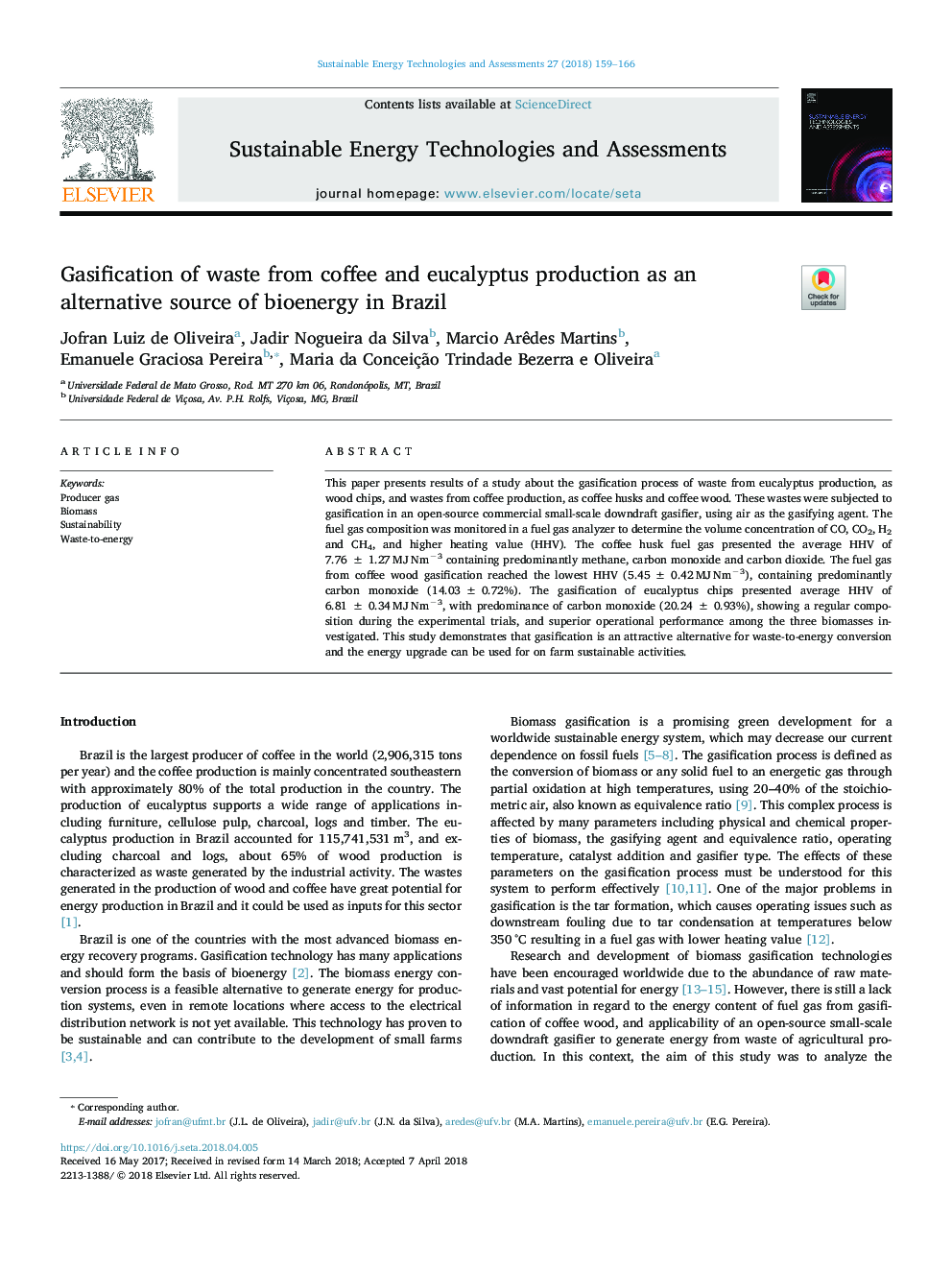| Article ID | Journal | Published Year | Pages | File Type |
|---|---|---|---|---|
| 8122725 | Sustainable Energy Technologies and Assessments | 2018 | 8 Pages |
Abstract
This paper presents results of a study about the gasification process of waste from eucalyptus production, as wood chips, and wastes from coffee production, as coffee husks and coffee wood. These wastes were subjected to gasification in an open-source commercial small-scale downdraft gasifier, using air as the gasifying agent. The fuel gas composition was monitored in a fuel gas analyzer to determine the volume concentration of CO, CO2, H2 and CH4, and higher heating value (HHV). The coffee husk fuel gas presented the average HHV of 7.76â¯Â±â¯1.27â¯MJâ¯Nmâ3 containing predominantly methane, carbon monoxide and carbon dioxide. The fuel gas from coffee wood gasification reached the lowest HHV (5.45â¯Â±â¯0.42â¯MJâ¯Nmâ3), containing predominantly carbon monoxide (14.03â¯Â±â¯0.72%). The gasification of eucalyptus chips presented average HHV of 6.81â¯Â±â¯0.34â¯MJâ¯Nmâ3, with predominance of carbon monoxide (20.24â¯Â±â¯0.93%), showing a regular composition during the experimental trials, and superior operational performance among the three biomasses investigated. This study demonstrates that gasification is an attractive alternative for waste-to-energy conversion and the energy upgrade can be used for on farm sustainable activities.
Related Topics
Physical Sciences and Engineering
Energy
Energy Engineering and Power Technology
Authors
Jofran Luiz de Oliveira, Jadir Nogueira da Silva, Marcio Arêdes Martins, Emanuele Graciosa Pereira, Maria da Conceição Trindade Bezerra e Oliveira,
